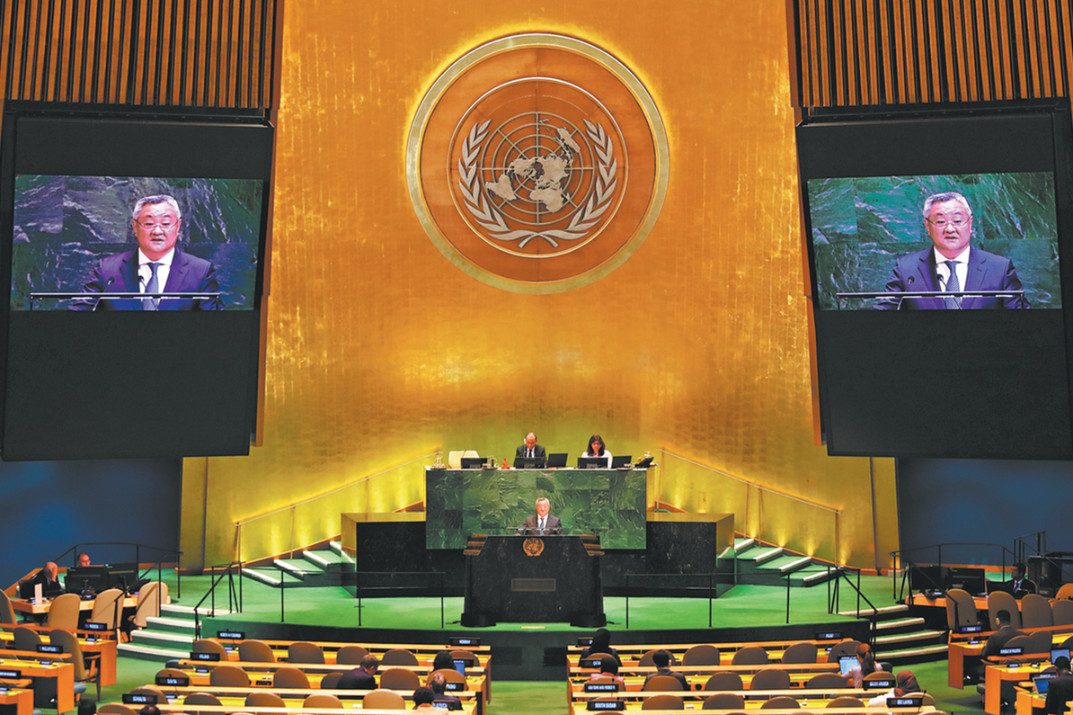America's China policy is not working: Henry Paulson
People's Daily Online | Updated: 2023-01-29 10:48

Henry Paulson, former US Secretary of the Treasury criticized America's broad decoupling with China in an article published on Foreign Affairs on January 26, in which he noted that "America's China policy is not working," while such policy "is likely to hurt Americans more than Chinese people over the long term."
"China and the United States are in a headlong descent from a competitive but sometimes cooperative relationship to one that is confrontational in nearly every respect. As a result, the United States faces the prospect of putting its companies at a disadvantage relative to its allies, limiting its ability to commercialize innovations. It could lose market share in third countries. For those who fear the United States is losing the competitive race with China, US actions threaten to ensure that fear is realized," noted Paulson.
According to Paulson, though the US is attempting to organizing a coalition of like-minded countries to counterbalance and pressure China, this strategy is not working. US allies and partners have made no secret of their desire not to isolate or contain Beijing. These US efforts are likely to be even less successful now that China is reopening, and Washington risks pushing against economic gravity.
"In fact, many countries are doing the opposite of what the hardest-line voices in Washington seek. Instead of decoupling or deintegrating economically, many countries are instead deepening trade with China…Nearly two-thirds of all countries trade more with China than with the United States," he noted.
"These efforts to shut out China will certainly hurt China, but they hurt the United States, too. American businesses are put at a huge competitive disadvantage…they hurt China but hurt US job creators, as well, including ordinary companies that depend on Chinese suppliers, have few workarounds, and have been crushed under the weight of inflation and high energy bills. US consumers pay the price," said Paulson.
The former US Secretary of the Treasury further noted that one way to tackles such issues would be that the US limits tariffs on imports of Chinese consumer goods, while Chinese and US decision-makers should meet more frequently and talk much more candidly.
Paulson believed that financial crises are inevitable, and they will be much easier to manage in ways that limit the economic hardship in both countries and the world if the two largest economies and drivers of economic growth are able to communicate and coordinate to anticipate and forestall economic disruption, as well as to mitigate its impact.
"It is in China and the United States' shared interests to do just that," he added.
Paulson is not alone in criticizing US’ broad decoupling with China. Attending a forum on January 23 in Australia, Microsoft co-founder and billionaire Bill Gates noted that China's rise to a leading economy in recent decades has been "a huge win for the world", but the US and China currently face a lose-lose mentality in their relations.
"If you ask US politicians: 'Hey, would you like the Chinese economy to shrink by 20% or grow by 20%?' I'm afraid they would vote that 'Yeah, let's immiserate those people,' not understanding that for the global economy, the invention of cancer drugs (and) the solution of climate change, we're all in this together. We're humans. We innovate together, and we have to change the modern industrial economy together in a pretty dramatic fashion."
"I'm very aligned with (Australia's former prime minister) Kevin Rudd on this," Gates said. "In the US, we'd be in a minority, where people are kind of hawkish. I think that could be self-fulfilling in a very negative way," said Gates.
























